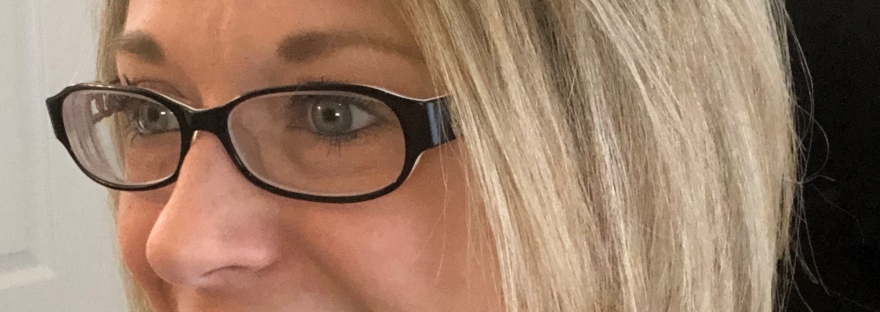Physical appearance is exactly that; an appearance. And, appearances can be deceiving, especially when there is so much that lies beneath the surface.
Many conditions are completely invisible to those not experiencing them first-hand. Neurofibromatosis II is often one of them.
After having my second craniotomy, I didn’t want to be labelled or defined by a diagnosis, or as a ‘sick” person, so I put a lot of effort into my appearance; making myself look “fine” on the outside.
I covered my PICC line with a long sleeved shirt, used makeup to hide the dark circles under my eyes, and cut my long blonde hair short to help blend in the multiple bald spots that had been shaved away during surgeries. I even learned to style it just right so that the majority of my stitches were covered.

In hindsight, my efforts were a bit vain. But, my appearance was one thing I felt as though I still had control over, when so many aspects of my life and health were spiraling out of control.
The truth is, you can’t see brain and spinal tumors on the outside. You can’t see exhaustion, brain inflammation, dizziness, or tinnitus. You can’t see remnants of seizures; numbness and tingling. You can’t see pain.
Part of me was grateful that strangers, co-workers, and even my own children couldn’t see all of the symptoms that were laying right below the surface. “You look great!” they would say. And I let them believe that I was great.
Another part of me wanted to wear a t-shirt that said something like “fresh out of brain surgery” so everyone would understand.
I remember walking into a neurology appointment one afternoon, just two weeks after surgery, with high hopes of having my stitches removed that day. It was one of those days; I’d had a migraine, and a hard time getting out of bed. The hour long drive to the medical office has zapped all energy I had left, and my body was physically shaking as I walked from my mom-in-law’s car to the building (she was kind enough to chauffeur me when I couldn’t drive). I actually wondered if I might pass out before I got to the door. A man was walking in ahead of us, but my legs weren’t moving fast enough. He glanced back, saw that I looked “fine,” and let that heavy door shut right in my face.
It was the first time that I wanted to scream “I just had brain surgery!!” How could he not see the pain I was in, and how much I was struggling?
What I didn’t realize at the time, was that there would be many more moments when I wanted to scream and shout until everyone ‘got’ it.
There would be moments at work when I would cry in the bathroom because a sudden migraine had hit, and I couldn’t open my eyes against the light over my desk; there would be moments when I had to hide from my children because their normal sounds would make my head pound.
I was not fine.
My brain had just been tampered with – twice in 3 months. A portion of my skull had been removed, and was now being held in place by 5 titanium ‘snowflakes.’ My scalp was held together by thread. Just to get out of bed each morning, I required a handful of medications and an IV infusion to keep the infection from coming back.
I took roughly 25 pills per day, had a home health nurse who cared for me, and relied on my husband to push antibiotics through my PICC line multiple times per day.
One day, I would be “fine” again, but for now, I was broken. And that was okay.

True healing takes time. Although I’ve never exactly been patient, I knew I owed it to myself to take the time I needed. Eventually, I knew healing would come, and when it did, I would hold the door open for every person behind me, even if they appeared to be “fine.”
This is my story, and it is not over yet.






